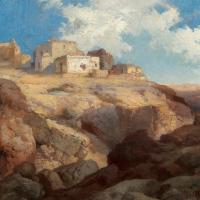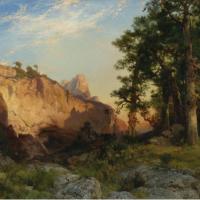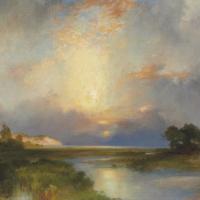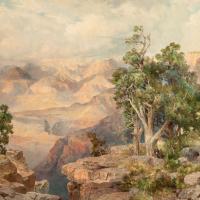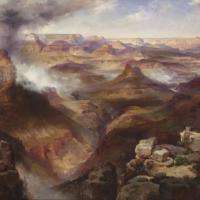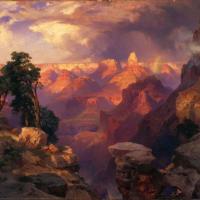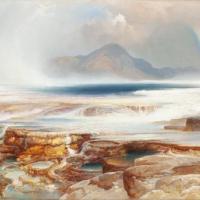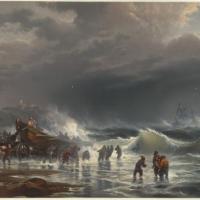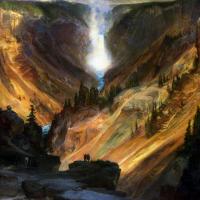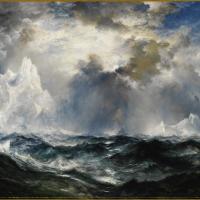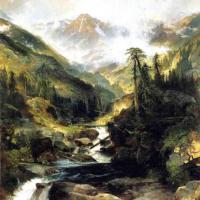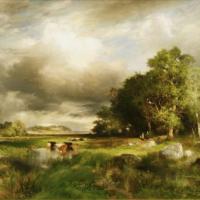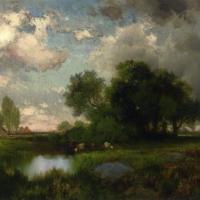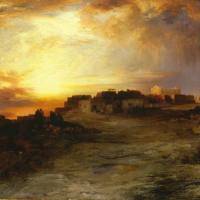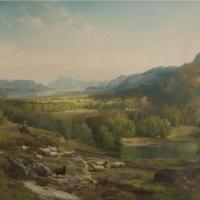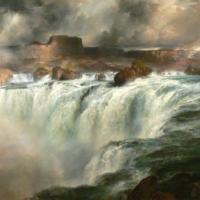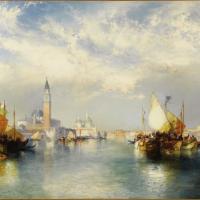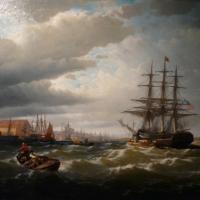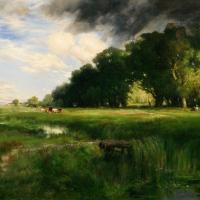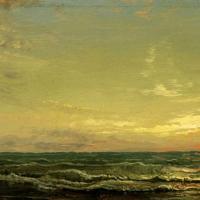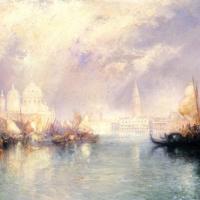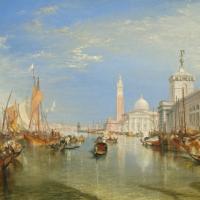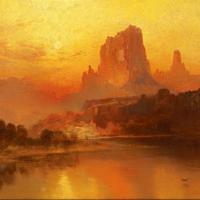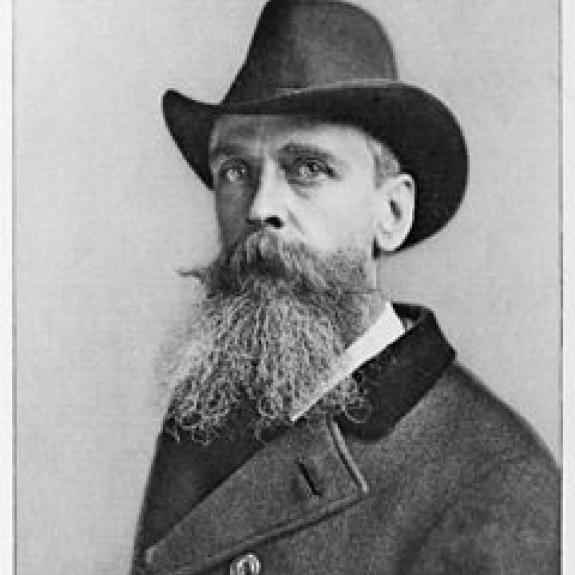Thomas Moran
A Bit Of Acoma, New Mexico
$450.00
A Scene On Tohickon Creek
$450.00
East Hampton, New York
$450.00
Grand Canyon With Rainbow
$450.00
Launching The Lifeboat
$450.00
Lower Falls
$450.00
Mountain Of The Holy Cross
$450.00
Near Southampton
$450.00
Passing Shower
$450.00
Pueblo At Sunset
$450.00
Splendor Of Venice
$450.00
Stormy Arrival
$450.00
Summer Squall Glenn
$450.00
Sunset Over The Sea
$450.00
The Golden Hour
$450.00
Thomas Moran
Thomas Moran (1837-1926)
Thomas Moran (February 12, 1837 – August 25, 1926) was an American painter and printmaker of the Hudson River School in New York whose work often featured the Rocky Mountains. Moran and his family, wife Mary Nimmo Moran and daughter Ruth, took residence in New York where he obtained work as an artist. He was a younger brother of the noted marine artist Edward Moran, with whom he shared a studio. A talented illustrator and exquisite colorist, Thomas Moran was hired as an illustrator at Scribner's Monthly. During the late 1860s, he was appointed the chief illustrator for the magazine, a position that helped him launch his career as one of the premier painters of the American landscape, in particular, the American West.
Moran along with Albert Bierstadt, Thomas Hill, and William Keith are sometimes referred to as belonging to the Rocky Mountain School of landscape painters because of all of the Western landscapes made by this group.
Thomas Moran began his artistic career as a teenage apprentice to the Philadelphia wood-engraving firm Scattergood & Telfer. Moran found the engraving process "tedious" and spent his free time working on his own watercolors. By the mid-1850s he was drawing the firm's illustrations for publication rather than carving them. It was then that he encountered illustrated books that included examples of the work of British artist J. M. W. Turner, who was to be a lasting influence on Moran's work. He also began studying with local painter James Hamilton. Moran traveled to England in 1862 to see Turner's work. From that point on, he emulated Turner's use of color, his choice of landscapes, and was inspired by his explorations in watercolor, a medium for which Turner was particularly well-known. During the 1870s and 1880s, Moran's designs for wood-engraved illustrations appeared in major magazines and gift oriented publications. Although he mastered multiple printing media including wood-engraving, etching, and lithography, which he learned from his brothers, he received renown for his paintings in oil and in watercolor. The height of his career coincided with the popularity of chromolithography, which Moran used to make color prints of his works, so that they could be widely distributed. He was also one of the leaders of the etching revival in the United States and Great Britain.
Moran was married to Scottish born Mary Nimmo Moran (1842–1899), an etcher and landscape painter. The couple had two daughters and a son. His brothers Edward (1829–1901), John (1831–1902) and Peter (1841–1914), as well as his nephews Edward Percy Moran (1862–1935) and Jean Leon Gerome Ferris (1863–1930) were also active as artists. He died in Santa Barbara, California on August 25, 1926.
Just one year after his introduction to the area, Moran captured the imagination of the American public with his first enormous painting of a far-western natural wonder, The Grand Canyon of the Yellowstone, which the government purchased in 1872 for $10,000. For the next two decades, he published his work in various periodicals and created hundreds of large paintings. Several of these, including two versions of The Grand Canyon of the Yellowstone (1893–1901 and 1872) and Chasm of the Colorado (1873–74) are now on view at the Smithsonian American Art Museum.
Moran was elected to the membership of the National Academy of Design in 1884 and produced numerous works of art in his senior years.
Thomas Moran has a painting exhibited as part of the White House collection. In the photograph depicting President Barack Obama and Israeli President Shimon Peres in the Oval Office it is seen on the wall: the portrait of George Washington is between City of Washington from Beyond the Navy Yard (1833) by George Cooke (on the left) and The Three Tetons (1895) by Thomas Moran (on the right). Official White House photo by Pete Souza.
The Thomas Moran House in East Hampton, New York is a National Historic Landmark.[9]Mount Moran in the Grand Teton National Park is named for Moran. His work is held in the collection of the Gilcrease Museumin Tulsa, Oklahoma, Cooper-Hewitt, National Design Museum, the Amon Carter Museum of American Art, R. W. Norton Art Gallery, and the Berkshire Museum in Pittsfield, Massachusetts.


